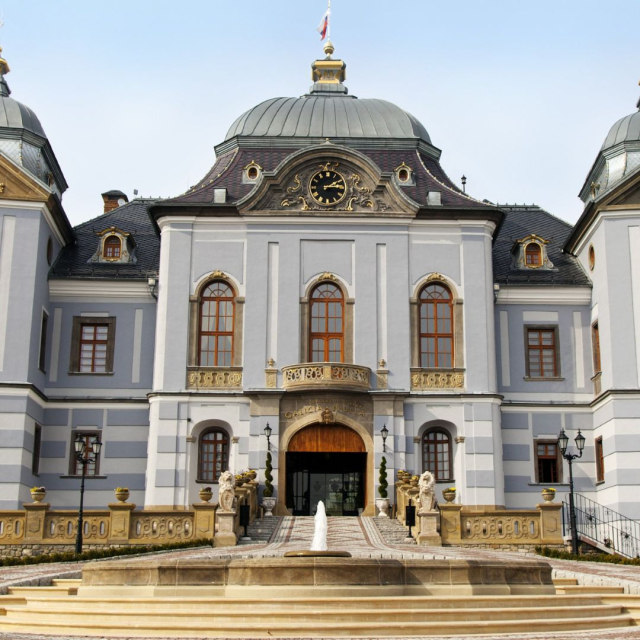The Day of Galician Letters, celebrated annually on May 17, is one of the most important holidays in Galicia, Spain. This day not only honors the Galician language, but also the literary figures who have significantly contributed to its development and preservation. Since its establishment in 1963, this celebration has played a crucial role in promoting Galician culture and literature, becoming a symbol of identity for the region.
History and Origin
The Day of Galician Literature was established by the Royal Galician Academy (RAG) in 1963, coinciding with the centenary of the publication of "Cantares Gallegos", the masterpiece of Rosalía de Castro. This book marked a turning point in Galician literature, giving rise to the Rexurdimento, a movement of cultural and linguistic revitalization. Since then, every year this day is dedicated to a writer who has stood out for his or her contribution to the Galician language and culture.
The date was not chosen by chance. On May 17, 1863, "Cantares Gallegos" was published, considered the first book in the Galician language to acquire literary relevance since the Middle Ages. For this reason, the holiday is imbued with a deep historical and cultural meaning.
The Galician Language: A Heritage to Protect
Galician is a Romance language with roots in Vulgar Latin, sharing origins with Portuguese. Despite its rich literary tradition, Galician has faced numerous challenges over the centuries, including the imposition of Castilian as the dominant language during the Franco regime. However, initiatives such as the Day of Galician Letters have been fundamental in ensuring its survival and promoting its use.
According to recent data, more than 80% of the Galician population understands and speaks the language, although its use in formal and urban contexts remains limited. This day seeks to highlight the importance of language as a vehicle for cultural expression and as an essential part of Galician identity.
Protagonists of the Day of Galician Literature
Each year, the Royal Galician Academy selects an author whose work has had a significant impact on Galician literature. Some of the most notable honorees include:
Rosalia de Castro (1963)
Considered the mother of modern Galician literature, Rosalía de Castro is an iconic figure of the Rexurdimento. Her works, such as "Cantares Gallegos" and "Follas Novas", not only revitalized the use of Galician in literature, but also captured the struggles and hopes of the Galician people.
Alfonso X "The Wise" (1975)
Although best known for his contributions to Castilian, Alfonso X also wrote in Galician-Portuguese, most notably in his work "Cantigas de Santa María". His inclusion as a tribute underlines the historical importance of Galician as a literary language.
Ricardo Carvalho Calero (2020)
A linguist, writer and one of the main advocates of reintegrationism, Carvalho Calero was the first author to be honoured after the restrictions imposed by the COVID-19 pandemic. His work and thought remain a reference for the study and promotion of Galician.
Activities and Celebrations
The Day of Galician Letters is celebrated with a wide variety of activities that seek to involve people of all ages. These include:
Public readings: Recitals and readings of the works of the author being honoured are organised.
Conferences and debates: Universities, libraries and cultural centres offer spaces for reflecting on the Galician language and literature.
Exhibitions: Museums and archives present materials related to the writer being honoured and the history of the Galician language.
School activities: In schools, workshops and theatrical performances are held to instill in young people the value of Galician.
Cultural and Social Impact
The Day of Galician Letters is not only a celebration of literature, but also a reminder of the importance of preserving linguistic and cultural diversity. In an era of globalisation, where minority languages often face the risk of disappearing, this day highlights the role of Galician as a unifying element of Galician identity.
Furthermore, the festival has served as a platform to claim the linguistic rights of Galician speakers, promoting its use in education, the media and public administration.
The Future of Galician
Despite the progress made, Galician faces significant challenges. Globalisation and the predominance of Castilian in many spheres continue to be threats to its survival. However, initiatives such as the Day of Galician Letters, together with more inclusive language policies and the work of cultural organisations, are contributing to its revitalization.
The Role of the New Generations
The new generations play a crucial role in preserving Galician. Thanks to social media and digital platforms, young people have new tools to express themselves in their mother tongue, creating content ranging from music and poetry to humor and activism.
International Collaboration
Galician also benefits from international collaboration, especially with Lusophone communities. This connection not only strengthens linguistic identity, but also opens up new opportunities for its dissemination and global recognition.
The Day of Galician Literature is much more than a festive day; it is a tribute to the Galician language, literature and culture, as well as a reminder of the importance of preserving linguistic diversity. Every May 17, Galicia celebrates not only its writers and poets, but also the richness of a tradition that is still alive and constantly evolving. In an increasingly globalized world, this celebration reminds us of the value of languages as an essential part of our identity and cultural heritage.
